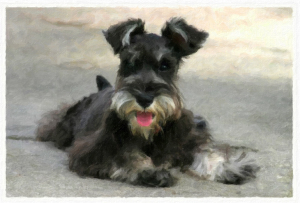The American Bulldog:
A Majestic Breed with Strength and Versatility
Introduction:
The American Bulldog is a powerful and versatile breed that has captured the hearts of dog enthusiasts worldwide. With its strong physique, unwavering loyalty, and a rich history deeply rooted in American culture, this breed has become a beloved companion, protector, and working dog. In this comprehensive article, we will delve into the characteristics, history, temperament, and measurements of the American Bulldog, providing you with an in-depth understanding of this remarkable canine.
History and Origins:
The American Bulldog’s lineage can be traced back to the early settlers of America, where they were originally bred for various tasks on farms and plantations. Their ancestors, the English Bulldogs, were brought to America by European immigrants and served as working dogs, primarily in controlling livestock and guarding property. Over time, the breed evolved to suit the demands of American life and developed its distinct traits, making it the breed we know today.
Physical Characteristics:
The American Bulldog is a large, muscular, and athletic breed. It possesses a well-defined bone structure and an imposing presence. Here are the measurements and physical features commonly associated with the American Bulldog:
Size: American Bulldogs are classified into two types: Standard and Classic. The Standard American Bulldog stands between 20 to 28 inches (50 to 71 cm) at the shoulder, while the Classic American Bulldog is slightly larger, ranging from 22 to 27 inches (56 to 69 cm).
Weight: The average weight of a male American Bulldog ranges from 75 to 125 pounds (34 to 57 kg), whereas females typically weigh between 60 and 100 pounds (27 to 45 kg).
Head: The American Bulldog has a broad and strong head, often described as square-shaped. It features a well-defined stop, muscular cheeks, and a wide, deep muzzle. The head is supported by a powerful neck.
Body: The breed has a compact and muscular body, with a deep chest and a level topline. The back is broad and strong, leading to a well-muscled hindquarters.
Coat: American Bulldogs have a short, dense, and smooth coat, providing protection against various weather conditions. The coat comes in a variety of colors, including white, brindle, fawn, brown, and combinations thereof.
Temperament and Personality:
American Bulldogs are known for their loyalty, intelligence, and protective nature. They are deeply devoted to their families and can form strong bonds with their owners. Here are some notable characteristics of their temperament:
Protective: American Bulldogs have a natural instinct to protect their loved ones and their territory. They make excellent watchdogs and can act as deterrence to potential threats.
Confident: This breed exhibits a confident and assertive demeanor. Proper socialization and training from an early age are essential to channel their confidence positively.
Gentle and Affectionate: Despite their imposing appearance, American Bulldogs are known for their gentle and affectionate nature towards their family members. They are often excellent with children, showing patience and care.
Intelligent and Trainable: American Bulldogs are intelligent dogs and are highly trainable. They respond well to positive reinforcement training methods and thrive when given mental stimulation and structured activities.
Here are some common health considerations for American Bulldogs:
- Hip Dysplasia: This is a genetic condition where the hip joint does not fit properly, resulting in wear and tear, pain, and reduced mobility. Regular exercise, a balanced diet, and avoiding excessive weight gain can help minimize the risk of hip dysplasia. Responsible breeders often screen their breeding dogs for hip dysplasia to reduce the occurrence of this condition.
- Elbow Dysplasia: Elbow dysplasia is a condition that affects the elbow joint, leading to lameness, pain, and arthritis. It occurs due to abnormal development of the elbow joint, and it can be influenced by genetic factors, rapid growth, and improper nutrition. Regular exercise and controlled growth through a balanced diet can help reduce the risk of elbow dysplasia.
- Brachycephalic Syndrome: American Bulldogs, especially those with a more pronounced brachycephalic (short-nosed) structure, may be prone to respiratory issues. Their short snouts can lead to difficulty breathing, overheating, and snoring. It is important to provide them with proper ventilation, avoid strenuous exercise in hot weather, and keep them in cool environments.
- Skin Issues: American Bulldogs may be prone to various skin conditions, including allergies, dermatitis, and infections. Regular grooming, proper hygiene, and a healthy diet can help maintain their skin health. If you notice any persistent skin issues or signs of discomfort, it is recommended to consult a veterinarian.
- Joint and Ligament Injuries: American Bulldogs, with their active and athletic nature, can be susceptible to joint and ligament injuries, such as cruciate ligament tears and luxating patellas. Adequate warm-up exercises, controlled exercise on appropriate surfaces, and avoiding excessive jumping or rough play can help minimize the risk of these injuries.
- Heart Conditions: Dilated cardiomyopathy (DCM) is a heart condition that can affect American Bulldogs. It causes the heart muscle to weaken, leading to inefficient pumping and potential heart failure. Regular veterinary check-ups and a balanced diet can help monitor and manage heart health.
- Eye Problems: American Bulldogs may be prone to various eye issues, including entropion (inward rolling of the eyelids), cherry eye (prolapsed third eyelid gland), and cataracts. Regular eye examinations by a veterinarian can help detect and address any potential eye problems.
It is important to note that responsible breeding practices, regular veterinary care, a balanced diet, and appropriate exercise can significantly contribute to the overall health and well-being of American Bulldogs. Consulting with a veterinarian and adhering to their recommendations will ensure a happy and healthy life for your pet.




